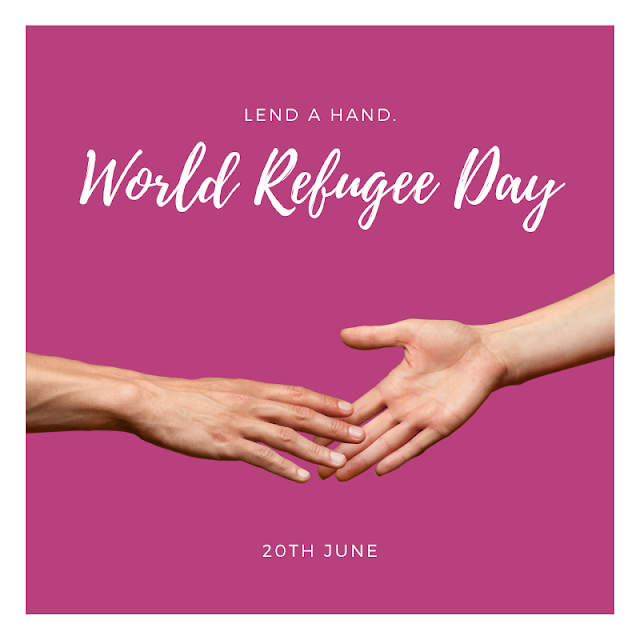World Refugee Day - Thursday, 20 June, 2024 | History | Download Images, Wishes, Pics, Status and Quotes
Background
Every
minute, 20 people are leaving behind to escape war, persecution or terror.
Multiple types of internally displaced persons:
Refugees
A refugee is someone who has left their home and country "is full of with a
reasonable fear of being persecuted for reasons of race, religion, nationality,
membership of a particular social group, or political opinion" of 1951
UN convention on refugees. Many of the refugees are in exile, to
prevent and manage the consequences of natural or man-made disasters are caused
by humans.
Asylum-seekers
Asylum
seekers who say they are recognised as refugees, and who have left their homes
because of the refugees, but their claim that the "refugee" status,
it is even better the country in which they have fled.
Internally displaced persons:
Internally
displaced persons (IDPs) are people who have crossed international borders, but
it has been moved to a different region it calls home, in their own country.
Stateless persons
A a stateless person who is recognized as a citizen, and do not belong to any
country.
Statelessness
situations are usually caused by discrimination, which has been associated with
some of the groups. The lack of an id card, a certificate of citizenship, it
can deprive them of access to essential public services such as health care,
education, training or employment.
Returnees
Return
of refugees to return to their countries or areas of origin to be in the way.
The return policy will need ongoing support and re-integration support, so that
they can return to their lives back home.
UN Action
The 1951 refugee convention and its 1967 Protocol
The
refugees are among the most vulnerable people in the world. The 1951 refugee
convention and its 1967 Protocol, to help keep them safe. They are not only global, legal documents, but also cover the most important aspects of
refugees ' lives. According to its provisions, the refugees deserve to at least
be in addition to the standards of the other foreigners in the country, and in
many cases, these appeals are of the same community.
In
1951, the Convention contains a wide range of rights and stresses the
responsibilities of refugees and their acceptance in the country. The basis of
the 1951 geneva Convention is the principle of non-refoulment. Thus, the refugees,
the principle cannot be returned to a country where his or their life or freedom
would be in danger. Such protection may not be claimed by a refugee, which is
basically considered to be dangerous to the security of the country or who have
been sentenced for a particularly serious crime, and is not considered to be
dangerous to society.
The
rights contained in the 1951 Convention include:
·
The right not to be expelled, except under certain,
strictly defined conditions;
·
The right not to be punished for illegal entry into
the territory of a contracting State;
·
The right to work;
·
The right to housing;
·
The right to education;
·
The right to public relief and assistance;
·
The right to freedom of religion;
·
The right to access the courts;
·
The right to freedom of movement within the
territory;
·
The right to be issued identity and travel
documents.
Some basic rights, including the right to be protected from refoulement,
apply to all refugees. A refugee becomes entitled to other rights the longer
they remain in the host country, which is based on the recognition that the
longer they remain as refugees, the more rights they need.
Happy World Refugee Day! Download Images, Photos, Pictures, Wishes, and Quotes
 Reviewed by Tanish Verma
on
April 30, 2024
Rating:
Reviewed by Tanish Verma
on
April 30, 2024
Rating:
















No comments: